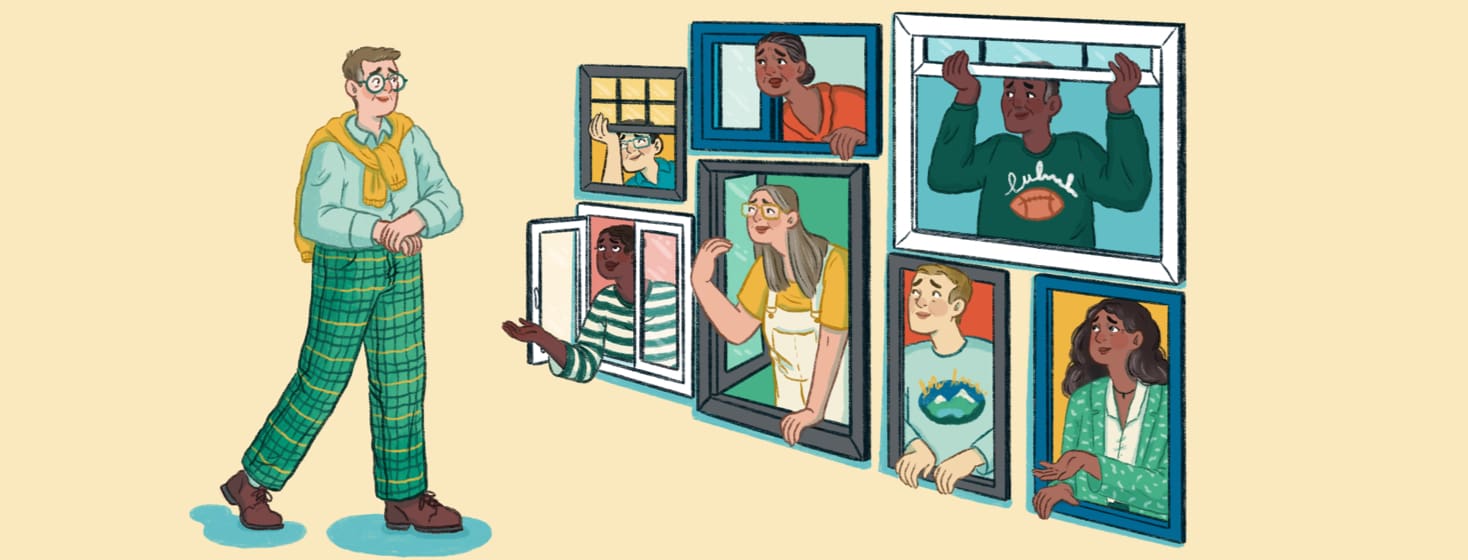Community Views: Managing a "New Normal" After a Psoriatic Arthritis Diagnosis
Learning to live with psoriatic arthritis (PsA) is a process. Physical and mental activities that you used to be able to do may become challenging. Then comes the anger or frustration.1
Tips for managing this painful new normal
Finding acceptance around your new diagnosis takes work. It is a daily practice to let go of what your life used to look like. But you can learn how to navigate the present with PsA.
To find out more about how you reach acceptance, we asked the Psoriatic-Arthritis.com Facebook community, “What are your tips for managing a new normal after a PsA diagnosis?” Almost 70 people responded. Here is what they shared.
Listen to your body
One of the biggest things the community shared is how important it becomes to listen to your body. You may find yourself running out of energy and physical stamina sooner than you used to. This means you likely need more rest.1,2
“Listen to your body.”
“Knowing when to stop and rest is the hardest.”
“Listen to your new body symptoms.”
“Rest your body, mind and soul. Sleep when you need it.”
“Rest as often as you need to. Do not push yourself beyond your limit because someone tells you what your limits are.”
Exercise in moderation
People were also quick to point out that despite needing more rest, you should not give up all exercise. Staying active, whether through walking, swimming, stretching, or another form of movement, has benefits. Several people shared that they felt less stiffness and pain if they exercised regularly.1,2
“My advice is daily gentle exercises. If I sit for too long, I get stiff.”
“I hear a lot of people say rest. However, one of the best things a person with arthritis can do is move, stretch, and stay as active as possible. I try not to sit for more than 15–20 minutes at a time. Walking is a good low-impact activity. Sitting and resting for too long will cause stiffness.”
Remove stressors from your life
Stress can lead to inflammation, and inflammation can lead to flares. Most people living with PsA quickly find that they pay too high a price for stressful situations, be they bad relationships or demanding jobs.2
Many people with PsA make big life changes to get rid of stress in their lives. Some set boundaries in relationships, cut back work hours or quit an unhealthy job. They also may begin doing stress-relieving activities, such as yoga and meditation.
“Eliminate any toxic people in your life, whether family or not. People with no boundaries cause TOO much stress.”
“Stress causes me to flare, so my calendar has minimal events. I take it day by day.”
Find support and community
One of the best ways to relieve stress is to find support. For many people, it is helpful to talk about the struggles and challenges of PsA with others who live with it. Finding community, either in person or online, can help you talk through the hard parts and find solutions for how to move forward.1
“Find a good support group where you can connect with individuals that understand and or can relate to your symptoms.”
Adapt and learn how to live this life
One of the biggest pieces of wisdom shared by the community is to make the effort to adapt. The sooner you mentally and emotionally accept that life is going to be different from now on, the sooner you will make peace with your new normal.
You can find work-arounds and solutions for living a happy, healthy life. Remember, too, that this is a process. Change does not happen overnight. Give yourself time and grace to find what works best for you.
“Focus on what you can do, not what you can no longer do.”
“Tell yourself daily you are wonderful and you are going to have a great day despite your pain and flares.”
“Do as my very first rheumatologist said: Live with it, with emphasis on live. Adapt with it and give in when you need to.”
“I am still learning 2 or so years on to fully adapt.”
This or That
Do you also find it painful to sit for extended periods of time?

Join the conversation